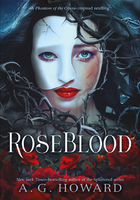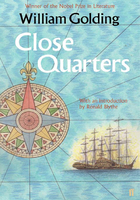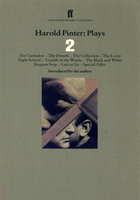Just as Griffin suspected, there was a meeting in Levison's office without him. From the path outside the administration building he could see the back of Levison's couch on the second floor. Was the meeting over? Levison was shaking hands with someone; Griffin couldn't see who it was. He knew he was watching the end of his job. He debated whether he should go to his office or return to the screening room he'd just left. He could use the phone there to call Jan, his secretary, for messages. If he went straight to his office, he would pass Levison's, and he didn't want Celia, Levison's secretary to see him in this moment of shame. Well it is shame, he thought.
He stared at the notebook in his hands and hated Levison for putting it there. Levison had asked him to watch the directing debut of a British producer, an old friend. And out of respect for Levison and his friendships, Griffin had made a careful assessment of the film, since Levison said he hadn't time to see it before a meeting with the director. Did Levison really care about the film or his old friend? Not enough to screen the thing for himself. Twenty-one minutes into the movie, Griffin could have stopped it, because not enough had happened. He had stayed in the screening room to hide, because he knew that Levison needed him, literally, in the dark for a few hours. Griffin was used to hiding at the right moment. Once he had gone to Paris to hide, when a film he had supervised was coming out. The film was terrible, and he wanted to avoid the blame. That was only last year, when he had been heir apparent. Everyone thought Levison was finished, but Levison held on.
He went back to the screening room. When he opened the door, he saw the production staff of a television show about to watch the film they had shot the day before. He didn't know anyone's name, but they all knew his. He apologized for interrupting them, someone asked if he wanted to stay. It was a transparent flattery, and he closed the door. The room across the hall was empty. He called Jan.
"Griffin Mill's office."
"It's me." He sounded weak, something caught in his throat.
"You got another postcard. Maybe I should call Walter Stuckel." Stuckel was head of studio security.
"What does this one say?"
He waited while Jan went through the pile of mail on her desk. "It says, 'You said you'd get back to me. I'm still waiting.'"
"What's the picture?"
"It's a joke card. There's a wagon pulled by mules, and in the wagon there's this huge watermelon. It's some kind of a trick picture. It says, 'We grow' em big in Texas.' Come on, Griffin, let me call Walter."
"No. A watermelon? I think I know who it is."
"Tell me."
"If I tell you, you'll tell Celia, and then everyone will know."
"So what, whoever it is who sends these cards looks like the jerk, not you."
"Trust me, it's contagious."
"What is, looking like a fool?"
"Yes. Besides, I know who it is, it's either Aaron Jonas or Steve Baylen, probably Baylen."
"No," said Jan, "I don't think the cards are coming from an agent, I think your secret correspondent is a writer. If you ask me."
Griffin knew it was a writer. The cards began about four weeks ago, a few a week, and yesterday, one of them appeared in his mailbox at home. It was in his pocket now. He supposed he had been followed home. Friends have my address, he thought, but this isn't from a friend. Why hadn't he called Walter Stuckel? Why was he so scared of him?
"Jan, trust me, this is some jerk friend of mine playing a stupid game. Let's change the subject. Any calls?"
"There's a meeting of all the department heads in Levison's office. You weren't invited."
"That's not a call."
"I thought you should know."
"Am I out?"
"Who knows?"
They said good-bye.
It was March, and when Griffin stepped out of the editors' building, the streets between the soundstages were empty. He wasn't sure why, but the idea that in this stillness lay all that was Hollywood excited him; he was almost embarrassed by this excitement over nothing, because there were no hordes of Indians and armies of Napoleon wandering around the lot, there was no sense of activity. Almost everyone said they hated the harsh yellow light that bounced off the high walls of the stages, but Griffin was not depressed by this calm. He liked the way he always separated into parts in the worst of the midday sun. It reminded him of marijuana, the pleasant terror of getting stoned in the middle of the day, of marching in step with the significance of things. Hot bright noons in Burbank were a kind of cosmic experience for him, because they were pointless, because the only tonic for the light, which was, in some sense, redemption's gleam, was money, work, authority. In what sense? he asked himself. In the sense that if Judgment Day is the only reason for conscience, then the bad feeling stirred by the light is an echo of some ultimate regret.
Now he was mad at this writer who had been sending him postcards. He took yesterday's card from his pocket. Paris Nightlife, the Eiffel Tower surrounded by cameos showing the Moulin Rouge, a fountain, Notre Dame. And the message. Typed, so the thin plastic coating of the card was broken, rippled: "You said you'd get back to me. We had a meeting, I told you my idea, you said you wanted to think about it, and you said that you'd get back to me. Well?"
The first postcard had come with a short message: "You said you'd get back to me." The handwriting was even, the letters a bit high and slanted but not eccentric, they were carefully spaced; it was like the impersonally romantic script of a love letter seen close-up in a movie. The postcard was probably from the early 1950s, a woman on the beach in Fort Lauderdale, under a bright orange umbrella. She wore extravagant sunglasses and a tortured smile. Griffin thought she would be happy that a Hollywood bigwig was finally looking at her. A few days later another postcard arrived, a glossy shot of the Eiffel Tower. The message was, "I'm waiting for your call." The day after that the third card came, with only one word. "Well?" The card was a picture of THE LATEST ADDITION TO UNITED'S FRIENDSHIP FLEET, a shortened version of the Boeing 747.
After that there were three more postcards, and none of them carried a message.
Across the street, he saw Mary Netter and Drew Posner, from Marketing. He braced himself for their buoyant onslaught. Drew waved his hand like the kid in fifth grade who has the answer all the time.
"Hey, Mister Vice President," he said. Griffin tapped an invisible hat brim.
"So cool," said Mary. Mary had short hair; a month ago it had been a crew cut. Once, at a party, Drew asked Griffin if he'd like to rub his dick over Mary's head. Mary's laughter had embarrassed Griffin, and he felt that embarrassment as proof of something bad about himself, an inability to play.
Levison's meeting was over, Griffin could see the back of the empty sofa by the window. He took the long way around the building to his office, to avoid passing Celia. The end of his job was inevitable. There would be other work, other studios, but the glow around him was probably lost, and he would never be the head of production, not for a major studio, not for this studio or Universal or Disney or Columbia or Paramount or 20th-Century Fox. These were the last studios with property, with soundstages and back lots, where you could point to a building and say, "That was Alan Ladd's dressing room" or "Over there we made Bringing Up Baby." And if it was sentimental of him to get a little pleasure out of the history of these buildings, did that harm anyone? If the Writer knew he had held on for this last bad year with Levison because he didn't want to leave the lot would he like Griffin a little, see him as just another human being with the full assembly of reasons to be unhappy? Would the Writer understand that even if Griffin were offered a great job as head of a company with offices in a tall building in Century City or Beverly Hills he might not want it, that the thought made him miserable? Orion and Tri-Star, big companies, were in office buildings, what difference did it make where they were? It just mattered to him, and he couldn't resist the gloom that soon he would have to give up a real studio with a real gate, trade in a parking space with his name painted on a concrete bumper for a pass to an underground garage. He wanted to say, how can you make a movie in an office building? That was another sentimental thought, but he caught himself and resisted the attack. Maybe he wasn't really sentimental enough. Wouldn't the studio's films have done better if he were more sentimental? Here he was, the centipede who tries to understand his own method, a sure way to stumble.
None of this was a surprise. For a few months Griffin had felt a slight change in the number of calls Jan logged during the day. One afternoon while she was away from her desk, Griffin had opened her files and compared a few days of recent phone logs with the logs from the year before. A year ago, in three days Griffin had received two hundred and ninety-five. In the last three days he had received two hundred and eleven. He hadn't counted the calls by category, but it looked at a few glances as though agents trying to sell him screenplays and directors were not calling him as often. He had no trouble getting calls returned, but something in the wind was telling people that Griffin Mill was not the best first choice anymore. Could the Writer sending him the postcards understand that they were in the same business, with the same rules for everyone?
When he walked into his office, Jan tickled the air in front of her, grinning. There was a postcard propped against her typewriter. HOLLYWOOD AT NIGHT, THREE VIEWS OF THE GLAMOUR CAPITAL OF THE WORLD.
"It went to Accounting by accident, they just sent it over. Look on the back."
"No."
"Come on, it's a girl who's sending you these cards, it has to be."
Griffin picked the card up and turned it over. The message: "Is it me, or is it you?"
"You were at a party," said Jan, "and you told some girl you'd make her a star, and she went to bed with you. You said you'd call her and you never did. You flashed her that big lover-boy smile of yours and you caught her on it."
"I don't have to lie to women."
"Honey, all men lie to women. It's in the blood."
Griffin had an instant of clarity, and he smiled, he relaxed, he leaned forward, he brought his face near Jan's, he liked himself for the first time in weeks. "You got me," he said. "It doesn't happen often. You know as a rule I don't mess with actresses."
"But they have such nice legs."
"I'll tell you the truth, it's not the length, it's the way they feel. It's the skin. It's how they get to be stars, too, it's something about the way they radiate. I'll tell you what happened. There was a party, I wasn't drunk, but she was. She told me to take her home. I took her home. I stayed a few hours. It was fun."
"And now she wants you to make her a star. Except you don't even remember her name. So you caught her on your smile. I hope she knows it's like your car, that you have to give it back when you're fired."
Griffin let the line pass, but he saw in Jan's eyes that she wished she hadn't said it. He pressed ahead with the story. "Are you ready for the punch line? She is a star. She's a television star, and she wants to make it in the movies. And she knows she never will, but she wants to try. And she thought I could help her."
"So why doesn't she sign her name? Maybe you're lying right now. Maybe she isn't a television star. How would you know, you don't watch television. You're ashamed to admit a one-night stand with a girl whose name you can't remember."
"Maybe she isn't a star?" Griffin said, trying to slump in defeat. Then he came back on the attack. "But you know why she won't sign? She's trying to be original. She thinks, of course I remember her, everyone else does. She didn't sign the postcards the way bad writers who don't have agents draw cartoons and write jokes on the envelopes of screenplays they send in to famous directors. They draw big noses sticking out of the flaps and stars around the directors' names. They think that if they can't be good, at least they can be different. They go to novelty shops that print YOUR NAME HERE on the headlines of phony front pages and send these stupid things as cover letters with their scripts. The headline says, STEVEN SPIELBERG WINS OSCAR FOR DIRECTING YOUR-NAME-HERE'S STUPID SCREENPLAY."
"It doesn't say 'stupid' on the headline."
"It doesn't have to."
"She's got to sign her name one of these days. Maybe she'll call you. Would you see her again?"
"I'll do what you tell me to do."
"Griffin, if she calls, or if you remember her name, or if she signs her name, be nice to her. If you use the casting couch, pay your debts."
"You'll be the first to know."
"The second," she said. She had closed the case.
Griffin's indignation developed a life of its own, and it remembered a party, an actress's long hair, kisses, promises. At dinner that night with Dick Mellen, his lawyer, Griffin heard himself babbling on about the postcards and the actress. Mellen, sixty-five, silver-haired, with a tan like brushed gold, had known Bogart, he had been drunk with Bogart a dozen times, which was why Griffin had hired him. Mellen didn't care about the cards.
"Put her in a movie," he said.
"But what if she can't act?" Griffin was surprised and annoyed with how shocked he sounded.
"That's what I'm telling you," said Mellen. "You know what they did in the old days? Prison movie. Visiting day. Long tracking shot down the room with all the little booths with the telephones. Wives and girlfriends, each one gets a close-up, each one the girlfriend of a different executive or producer."
"But she's the star of a television series."
"Which one?"
"I'm sworn not to say."
"Griffin, this isn't a joke."
"If she's any kind of grown-up, she'll keep it to herself."
"No. Grown-ups turn everything to their advantage and don't worry about scandal. At least they do in this town. If she's smart, her agent'll call Levison to talk about projects."
Griffin saw that he had lowered himself in Mellen's eyes, not for the actress but for making things inexcusably difficult.
Mellen changed the subject. "You know your job is not exactly secure right now."
"Everything will work out. We're making some good pictures." This was what he was supposed to say, and he didn't like the sound of it. The lie about the actress had upset his rhythm, he was measuring every thought now.
"I think they're bringing in Larry Levy."
Griffin exhaled, and with the rush of air again he tortured himself, this time for collapsing, for taking the news as a body blow, taking it badly. He always tried to contain the air, contain the feeling, not show too much excitement, not show unhappiness. This was the closest he came to meditation; when other executives whooped and slapped each other's palms if an audience cheered during the first sneak previews of a film, Griffin kept the feelings to himself. And now, instead of keeping the air inside, to stay firm, he was breaking one of his first rules. Without any control now he heard himself add another hatefully dull thought to the conversation. "Larry Levy's a jerk."
"Do you want to quit? I don't think you should."
"I'd like to run Columbia."
"You can't turn back the clock." The job had been offered a year ago, and Griffin had told them no. He had wanted Levison's job, and there was talk that he'd get it. The talk had been wrong.
"Keep your eyes open," said Griffin, another stupid phrase.
"That's what I do," said the lawyer.
Griffin wanted to tell Mellen that the story about the actress had been a lie, every word of it. If he told the truth, would the fissure between his thoughts and their expression be healed? Or was purification impossible without greater sacrifice and harder work?
A fresh thought came to him and made him sick. He would end up having to sell something, real estate or cars. If he lost his job during a round of musical chairs, he would be on the way to exile from Hollywood. This wouldn't happen immediately. The favors due him would be paid off, if he couldn't get important work at a big studio, one of the stars or directors he'd fought for might hire him to run his office and find material, and let him produce something if he'd been there from the beginning. If the films died, and the next crew of bright young executives saw him as a relic, then where could he go? Smaller companies, with little funding and few contacts. They would hire Griffin for his address book, not understanding that the book was as out of touch as the book's owner. Eventually, his disgrace would catch up with him, and everyone would know he was old, over the hill. One day he would be out of money. The next day he would put his house on the market, then take the profit and rent an apartment somewhere, and look for work outside of Hollywood, outside of the movies. By then he would be, what, forty? He tried to see himself at forty, selling German cars to young producers and studio executives. He imagined the ad in a newspaper, "Hi, I'm Griffin Mill, here to help put the entertainment professional behind the wheel of a precision motor car." Why not kill himself now? The fantasy ended with his funeral, and a crowd of pitying friends.
He didn't ask himself how he would come to die at forty. He would die of embarrassment. He chased these thoughts away, and tried to picture himself as an independent success, a real producer, a man of accomplishment, a man to be feared. Nothing. No such picture would emerge, there was too much interference from all the confusion in his life. He knew how anyone who had known him in the past would read the ad for the Mercedes dealership, "Hi, I'm Griffin Mill. I had promise, but I fucked myself."
Home in bed, Griffin looked through the dark to the postcard writer. He concentrated, trying to beam his mind to the Writer's mind, asking him to stop the cards. If the night is alive, thought Griffin, then what I tell the night in my room, the night can tell you in your room.
Leave me alone.
I'm sorry if I broke a promise. That's life.
Griffin saw these thoughts fall to the middle of the bed, dead. He pictured the distance between himself and the secret correspondent as a series of contiguous dark boxes, and he spoke aloud, testing the air with his voice and receiving a slight echo. "Hello? It's me, Griffin Mill. I said I'd get back to you. Well, here I am. Please stop sending the postcards. I can't stop thinking about them, and they're getting in my way. Listen, if I find out who you are before you identify yourself or stop sending these cards, you'll never work for me."
He thought the last part sounded stupid, and imagined an audience agreeing with him, saying, "Yes, Griffin, that pathetic threat sure is stupid." The sense of someone watching felt like a good sign, that he'd gotten through.
The next morning he had breakfast at the Polo Lounge with Levison. They met every Wednesday; it was so much a part of their schedules that they no longer confirmed the meeting unless it was going to be canceled.
"Read any good scripts lately?" asked Levison.
"Chinatown."
"They already made that one."
"I read it last week."
"You know they'd never make it now. They wouldn't even make Saturday Night Fever now."
Griffin smiled. "Excuse me, but you and I are 'they.'"
"I'm 'they.' You're almost 'they,' but not quite." Griffin didn't like Levison's curdled smile. The mild remark came quickly, and it seemed to Griffin that Levison regretted it. Levison continued, "In Saturday Night Fever, Travolta wins the dance contest but realizes it's a hollow victory, that the world of the discos is an empty world. Can you see that now?"
"He grows up in the story. What difference does the background make? Plus the music is great. And the dancing is great."
"Forget it, Griffin, the ending is ironic. The audience is too angry, too impatient. They hate ambiguity, they want everything reconciled."
"Why wasn't I at the meeting yesterday?" Attack.
"There may be some changes."
"Am I in or out?"
"Larry Levy is coming aboard." He said this quietly.
"I report to you. I'm not going through Levy. If I have to report to Levy, I quit."
"You can't quit. I won't let you, and you have a year and a half on your contract. I'll get in your way if you try. Don't go looking for offers at other studios. I'll hold you to your contract, and if you make trouble, I'll sue you for breach unless you come to the office every day, and I won't have anything for you to do. Relax. Levy's bright. He was available, and I thought we could use him. He's good. He's real good."
"I know him," said Griffin, irritated.
"He can make us all look good."
"So I'm not the flavor of the month anymore?"
"You haven't been for a year. And neither have I. And Larry Levy will lose his flavor, too. Look, if you really want to leave, I won't stop you. I want you to stay. Griffin, I need you, but I can understand your feelings. Forget what I said about a lawsuit. If it's impossible to share the power, I'll give you a development deal. You can be a producer."
"Right, so Variety can quote me saying, 'It's a chance I've been waiting for since I came to Hollywood. I'm thrilled.'"
"Don't be bitter." Levison poured him another cup of coffee, which Griffin accepted against his will. The coffee burned his stomach all day and made him feel like he was gliding over the surface of everything, impossible to find traction.
At the office, Jan handed him a souvenir packet of "Ten Memories from Southern California," a pleated strip of cards that folded flat and then closed with a tab inserted through the card on the back. The front was for the address but managed to save room for a cartoon of the region, with the most famous sights drawn in extreme relief. Disneyland's Matterhorn was the size of Everest, huge surfers rode boards the size of aircraft carriers on tidal waves into Malibu. A camera on a tripod was the Colossus of Hollywood and Vine. The picture on the back was of BEAUTIFUL LAKE ARROWHEAD, JUST AN HOUR FROM THE WORLD'S FINEST GOLFING AND SAILING. Griffin opened the packet. This message was typed.
Dear Griffin,
I'm still waiting for you to call. You said you'd get back to me. My answering machine is on all the time, so you can't say that you called but I wasn't in. I told you my idea, you said you wanted to think about it, and you said you'd get back to me. My agent said that was a good sign, the part about getting back to me. I've waited long enough. You lied to me. It's obvious you have no intention of hiring me. In the name of all the writers in Hollywood who get pushed around by executives who know nothing more about movies than what did well last week and have no passion for film, I'm going to kill you.
Griffin folded the cards.
"Well, who's it from?" asked Jan. "The actress?"
"She says she was just having fun with me and wants to know if I'll have dinner with her soon. She says she knows how hard it is to cross over from TV to film, but she wants to try, and she's not holding me to any drunken promises."
He danced to his office and pulled the door shut. He hoped that he was smiling.
Why aren't I afraid? he asked himself. Why don't I call Walter Stuckel? It would be so easy to show him the postcards. Griffin pictured himself withdrawing from Stuckel's concern; it would be that arm around his shoulder, an hour of advice about security, a bodyguard, an investigation into his friends. Word would get out that he was a target. Stigma.
He called Jan on the intercom. "I'm going to be tied up on the phone for a while. It's important. Tell anyone who wants me that I'll be back later." Then he called the number for the time, so a light on Jan's phone would show that he was talking, that he was busy. He took his desk calendar and sat on the couch. He got up quickly and went to his refrigerator for a can of tomato juice. He put the latest postcard on his coffee table and tried to take a deep breath. The room was quiet.
A few phrases leapt from the card, like the Southern California Hi-lites on the cover. My idea … my agent … everyone knows writers …
Griffin turned the pages of the calendar. Three or four times a week he heard ideas from writers he didn't know. Most of them had never had a movie produced. Griffin barely remembered the names or the faces. He remembered none of the ideas more than two weeks old. He remembered enthusiasm, calculated optimism and offensive cheeriness, and sometimes a sad, embarrassing panic. Yesterday one had come in; Griffin had already forgotten his name and he checked it on the calendar. Doug Krieger. Doug Krieger, without saying hello, launched into the story from the effect of silence after the brilliant title sequence faded to the rhythm of a hundred drummers from Ghana. He was pitching some stupid African adventure story. No one would want to make it.
Griffin looked at the names of other writers. Jan never gave them longer than thirty minutes. He never needed more than fifteen. Some tried to condense their ideas to twenty-five words, in and out, as they'd learned in some screenwriting class taught by someone who'd made a science of yesterday's formula. They'd talk about the "arc of the story." They'd use little code words and phrases like paradigm and first-act bump. They were exact. "At minute twenty-three she finds out …" What does she find out? That this movie won't get made. They'd talk about "the rules of the genre." They'd set the scene with casting: Jeff Bridges and Meryl Streep are locked in a bank vault. They combined stories: It's No Way Out meets Jagged Edge with a twist from The Searchers.
Some tried to chat for ten minutes before they began the story, to make friends with him. They'd talk about politics or try to teach him a little lesson about art. Some were afraid, their mouths dried out in the middle of the pitch; he could see the tide of fear in their eyes when they could read his boredom. Some talked with Jan like they were long-lost cousins, and then they crumpled in his office. Some were cocky and leaned back into the couch like they owned the room, and they looked up to the ceiling, releasing their stories in a monotone. What was their point? They'd pause before the moment which they were sure would force Griffin to his feet and his desk and a pen, where he would yank his checkbook from a drawer and write them that ticket to a legendary career, to the beginning of their real lives, the promised lives they contained within themselves, inscribed in their genetic code, lives of perfect harmony, where even the bad moments were epic, where tragedy replaced confusion, and ecstasy replaced the merely happy. Yes, Griffin Mill could anoint them, make them Gods, he could grant them everything, he could grant them Christmas in Aspen with Jack Nicholson.
Some worked in teams, like pickpockets or police detectives, completing each other's sentences, playfully contradicting each other, or sometimes flashing murder as one of them botched that fantastic part of this incredible story which would make everyone rich. Some of them even talked about money, about how much the movie would make the first week if Harrison Ford played the hero, how much less if they went with someone else.
They came in with big ideas, rebellion, divorce, revenge, honor. They offered atmosphere: It's sort of a red mood, it's kind of a gritty future, it's funny. Each idea represented a million adjustments to reconcile the difference between the writer's movie of his dreams, which would be the really immortal movie, that tour through the brilliant connections of his freely associating but always focused mind, and the studio's version of that dream, toward the production of which the writer conceded the banal necessity to tell a story. The writers leapt to all this accommodation in anticipation of the thirty-minute audience they'd have with Griffin Mill, that chance of a lifetime to impress their pure, almost unknowable genius on the mediating taste of someone who knew what America wanted to see.
He never said no.
They made their little speeches, then they waited for his response. If he said no, they might challenge him and ask him why, and then they would sell it to him once again, which was futile. He might ask a few questions about the setting, or he would object, moderately, to some unsympathetic quality of the main character, but he would allow them to leave his office thinking that although their chances were slim, yes, yes, yes, there was a possibility. Sometimes, when he walked writers to the door, he pointed to the photographs hanging in the hallway. These were small publicity stills, behind glass, no frame, famous scenes from the movies that had built the studio. He wanted the writers to understand that his door was always open, but they had to bring him a story with crises so powerful that the future could make its images sacred. Kisses while a city burns. Desperate submariners gathered around the periscope. The cavalry leaving the fort. The guilty confronted. The spaceship appearing. Lovers reconciled. Funny men (nervous, innocent) hanging from high places. Monsters. Women screaming. Comedy of inappropriate behavior. Airmen serenading the captain's girl. These were the emblems of the movies' spirit, of love, blood, and speed.
Griffin expected the writers to understand from his silence after a few days that they had failed.
Now he wondered if using time in the service of so much disappointment wasn't a sin.
What happened when writers left him? If the meeting went well for them, did they think that now their lives were different, now their lives had begun? How long before the bogeyman tapped them on the shoulder and said, "No. Not yet. Not you. Not now." What happened to them then, when they were alone and ashamed under the relentless, boring sun of their usual life, burning them with the mundane, with frustration?
If he wasted their time, hadn't he also wasted his own? Somewhere in his mind, wasn't there a fussy little man pushing colored pins into a bulletin board every time a promise was made, and didn't that little man cry for all the pins he'd bought, arranged, and wasted, because the board was covered with pins and he'd never been told what to do with them. He had lost track of the promises.
What about all those meetings? Griffin asked himself. He turned the pages of the calendar. So many meetings. Had he ever said yes? There were some meetings that had led to deals, there were a few deals that had led to movies, but only when writers had come in with producers, or when writers had reputations, when they were on the list, when they'd already sold something or made something. The Writer sending the postcards wasn't on any lists. Griffin guessed he had written a good script, something that attracted the attention of a good agent, and that the agent had then called a few executives, who took his calls and had the Writer meet them. The line in the letter about the agent saying this was a good sign told Griffin that the agent didn't know him very well. He could make a master list of writers and the agents who had sent them to cross-reference the least familiar names, but he would have to ask Jan for help. That was out of the question.















